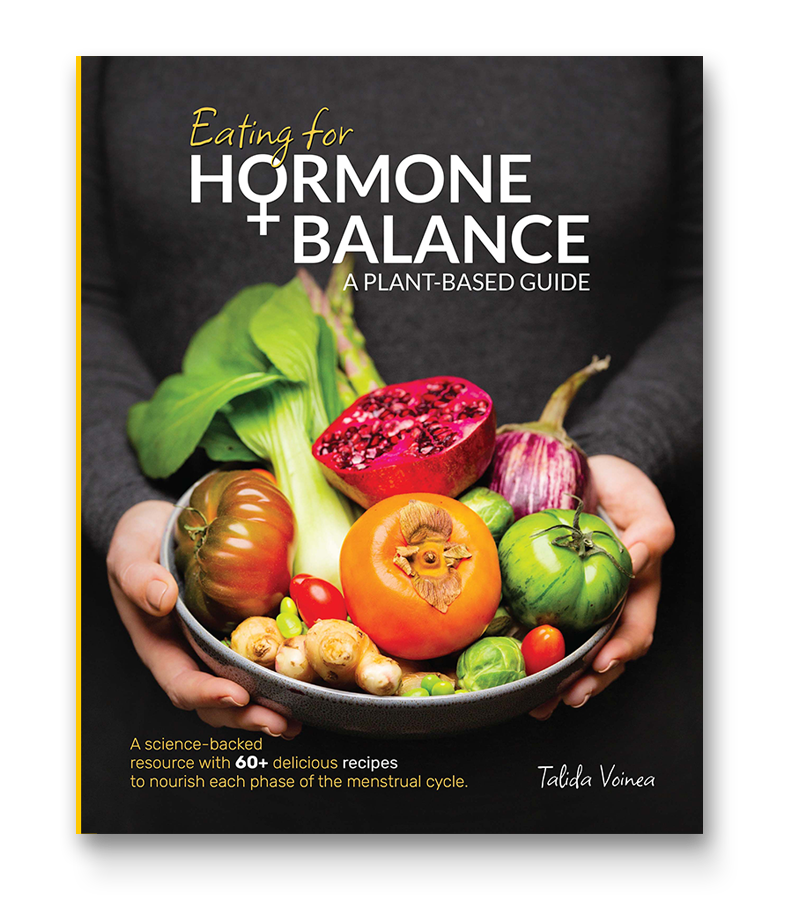Paternal sub-fertility has many causes and contributes to 20-30% of all infertility cases (2). There is evidence suggesting a decrease in the quality of semen over recent decades (5). Causes
Sexual and Reproductive Health | Women’s Nutrition and Metabolism | Fertility Awareness Method
This book is a comprehensive educational guide on eating for hormone health with a strong focus on plant predominant diets for women. A science-packed resource to give women the knowledge and inspiration they need to support their unique physiology. The book includes:
- Menstrual cycle and hormone education
- Foundational guidelines
- Exploration of the science regarding many confusing nutrition topics pertaining to women’s health eg, gluten, dairy, soy and alcohol
- Cycle syncing
- Over 60 delicious phase-specific plant-based recipes.















